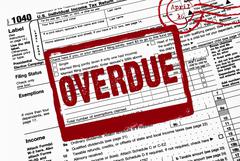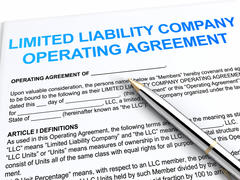
Grandparents can help with college and lower taxable income.
A grandparent helping their grandchild pay for college can be a win all around. When a grandparent that contributes to a 529 savings plan, it lowers assets within the grandparent’s estate. This helps lowering estate tax.
Another great thing about a grandparent who owns a 529 college savings plan is that the account isn’t taken into consideration when the grandchild is applying for financial aid.
Read More

Reverse Mortgages are usually marketed in an appealing way. This could lead to someone asking how is it possible to pay a mortgage in reverse?
A reverse mortgage (also known as HECM, Home Equity Conversion Mortgage) works much like a regular mortgage but instead of you making a payment each month to the lender, the lender sends you a payment.
This type of mortgage is available to homeowners who are the age of retirement and older. Essentially, the mortgage holder gets cash installments sent to them based on the equity in their home.
Read More

Taxes get more complicated for most businesses than they do for individual taxpayers. And not knowing the laws applicable to you is not a justified reason to not comply. Here’s a guide to debunking common myths about business and taxes.
Read More

Make the most out giving to charity by benefiting from all the available tax breaks you’re entitled to.
Maintaining diligent records is the cornerstone to being eligible for the entire charitable contribution deduction the law entitles you to. This comprises of making sure the IRS has collected the mandatory statements for two donation categories—each donation of a minimum of $250 as well as gifts of vehicles. Tax filers intending to claim charitable contributions should ensure they’ve obtained all records required before filing their taxes.
Read More

Tax planning is the practice of analyzing multiple tax options to decide how you want to operate your business as well as your individual transactions to minimize or wipe out your tax liability.
Read More

See if your moving expenses qualify for a deduction.
If you moved as a result of a job change or to start a new business, your expenses are more than likely eligible for a tax deduction.
Read More

Forgot or put off your tax return? Here’s what you need to know.
It’s going to be ok. Or at least if you take care of it now, it’s going to be better than it will be if you keep avoiding filing your return.
Read More

Learn how your personal vacation can be turned into a legal deduction.
If you own your own business and decide you want to take a two-week road trip across America, you can legally deduct almost every cent you spend on your vacation. Here's how you do it.
1. Set up business appointments prior to your trip.
Many folks think they can go on vacation and just dole out business cards and then the trip is considered deductible. However, they are wrong.
Read More

Automatic reinvestment is a great strategy but is still subjected to being taxed.
Many mutual funds give you the choice of automatically reinvesting dividends and capital gain allocations back into the fund. This is an excellent option to acquire new shares and build your investments.
Read More

With a working knowledge of how mutual funds are taxed along with some diligent bookkeeping, you can reduce the amount your mutual investments are taxed on. The below gives you the understanding you need of mutual fund taxation.
Read More

The IRS requires you to meet specific obligations when hiring a new employee. Here’s a list of what you need to know to do
Proof of Citizenship
You need to confirm that every new hire is allowed to work in the US. To confirm this, you and the employee will need to complete the U.S. Citizenship and Immigration Services (USCIS) Form I-9, Employment Eligibility Verification. An I-9 form is available at USCIS offices or you can call 1-800-870-3676.
Read More

Employers are required to give you your W-2 by January 31st. Here’s what to do if you don’t have it.
You should follow the four steps below if you’ve not received your W-2 from your employer.
Read More

If you’re taking a vacation, you can rent your house out while you’re away. You can make money and have a housesitter all tax free.
The IRS allows you to rent your home up to 2 weeks without having to pay income taxes. This can be an ideal scenario if you’re concerned about leaving your house empty for 2 weeks. You can use an online service like AirBnB to find qualified people to rent your house.
Read More

What's type of loan is ideal for big ticket items?
An equity loan is best for those who own their home. Interest paid that comes from credit card debt and auto loans are not eligible for reducing your taxable income. However, you can use the interest from an equity loan on your home to reduce your taxable income. So if you want to buy a car, you could take an equity loan out on your home and buy a car.
Read More

Great tax management is keeping and receiving all the money you’re entitled to while meeting your legal obligations. Here are some common mistakes you don’t want to make.
Read More

The best way to plan for taxes is to start at the beginning of the tax year. So it’s important to know how the tax laws change so you can plan to take every advantage to keep as much of your income as you’re entitled to.
What’s New for Business Owners
Read More

If you have neglected to file past taxes, you’ll be surprised it isn’t as stressful as it you might think.
However, the longer you wait to deal with paying your taxes and filing a claim, it just gets more expensive. It’s best to take care of it now. You’ll be so happy you did!
Even if you know you can’t pay all you owe, it’s best to make sure you file on time as you may qualify for a payment plan. However, paying by the due date is the way to go about paying the least.
Read More

You may be eligible for a deduction when making your itemized deductions if you incurred a significant amount of healthcare and dental cost costs last year.
If your health care costs were over at least ten percent of your yearly gross income, there are several things that you can deduct:
Read More

You may not even be aware of the term, “Advance Premium Tax Credit,” but you definitely need to understand how it impacts the amount of taxes you could owe or how much of a refund you may be entitled to.
Not only has the Affordable Care Act (ACA or ‘Obamacare’) impacted Healthcare, it has had a significant impact on taxes as well. Here’s what you need to understand about Obamacare works and how that affects your taxes.
Penalties
Read More
For most newly divorced people, doing taxes the following year after the divorce brings up important questions that can be stressful. Here’s what you need to know to successfully make the transition.
Taxes can be complicated after a divorce due to the divvying up of assets and splitting income as well as paying or receiving alimony. If you have kids, it get’s even more complex.
Read More

Your guide to goods and services expected to increase in price in 2015.
Abraham Lincoln once said, “The best way to predict the future is to create it.” Budgeting and being organized with your money is the foundation for creating more money.
This year, 2015 brings with it rising costs that could negatively impact your budget if you’re not prepared. Here’s a list of what’s going to get more expensive this year:
Read More

April 15th will be here before you know it. Getting prepared today will set you up for the most peace of mind and give you the best chance towards keeping all the money you’re entitled to for the past tax year.
This exhaustive checklist will get you prepared to meet April 15th head-on. Go get it all together today!
Individual Info
-
Tax Returns for the last 3 years
-
Tax ID or SSN
-
Alimony Paid plus SSN of ex-spouse as well as their full name
-
Spouse’s full name and SSN
Read More
Most people starting a business start the business because they are good at providing the product or service they are selling. Bookkeeping is usually an afterthought but yet, a realized necessity to be able to provide the goods and services they wish to sell.
Here are the common considerations regarding bookkeeping that new business owners face.
Defining The Case for Bookkeeping
Essentially, bookkeeping is the official documentation of all financial transactions and inventory of assets.
Read More
The IRS requires you to maintain consistent accounting throughout your fiscal year. You must use a method that clearly reflects your income.
When you file your first tax return, you’ll decide on an accounting method. No one method is mandatory but your method must accurately mirror your income and expenses and thus the upkeep of your records and books is crucial. Not only books, but you must maintain any documents that support the data in your books—receipts, invoices, manifests, etc.
Read More
You may be able to elect a tax year that suits your business; how will you choose?
The IRS requires your business to determine your taxable income based on your tax year and file a return accordingly. Your tax year is the yearly accounting timeframe for reporting income, reporting expenses and maintaining records.
Read More

With only one month left in the calendar tax year, now is the time to make some strategic moves to lower your taxable income for the year.
Before there year ends, you’ll want to give yourself the gift of savings on taxes. Below is a list of common tactics to take before the year’s end. See what applies to you and act on these now before it’s too late.
Read More

If you’re starting a new business, you may need an EIN (Employer Identification Number) from the IRS. Here’s how to determine whether or not you need one as well as how to get it.
If you’re a sole proprietor or in some states, a single owner of an LLC, the good news is that getting an EIN is free! This is a relief if you’ve already had to pay for the LLC, business insurance, and city business licenses. More details on costs coming up.
Read More

If you’ve always been an employee and are just starting out on your own, you’ve probably started to hear more about this “quarterly taxes” thing. And with good reason and it’s something you need to take seriously for sure.
Here are a few reasons why you may need to make estimated quarterly tax payments:
Read More

A Limited Liability Corporation (LLC) is a hybrid between a sole proprietorship and a corporation. So, as the owner or partner in an LLC, you are considered self-employed as you would be as a sole proprietor. In an LLC, the business itself is not taxed but its owners are. And like a corporation though, an LLC is protected from having personal assets pursued that are the result of business actions. It’s not recognized as its own entity like a Corporation is an entity however.
Read More
An annuity can seem like it’s some word thrown around with retirement and savings on financial ads during football season. Here’s a little help to understand annuities.
Annuities are essentially a savings account that you get from an insurance company. They are set up to ensure that you have money for retirement and can help you stretch money over a couple of decades.
Read More